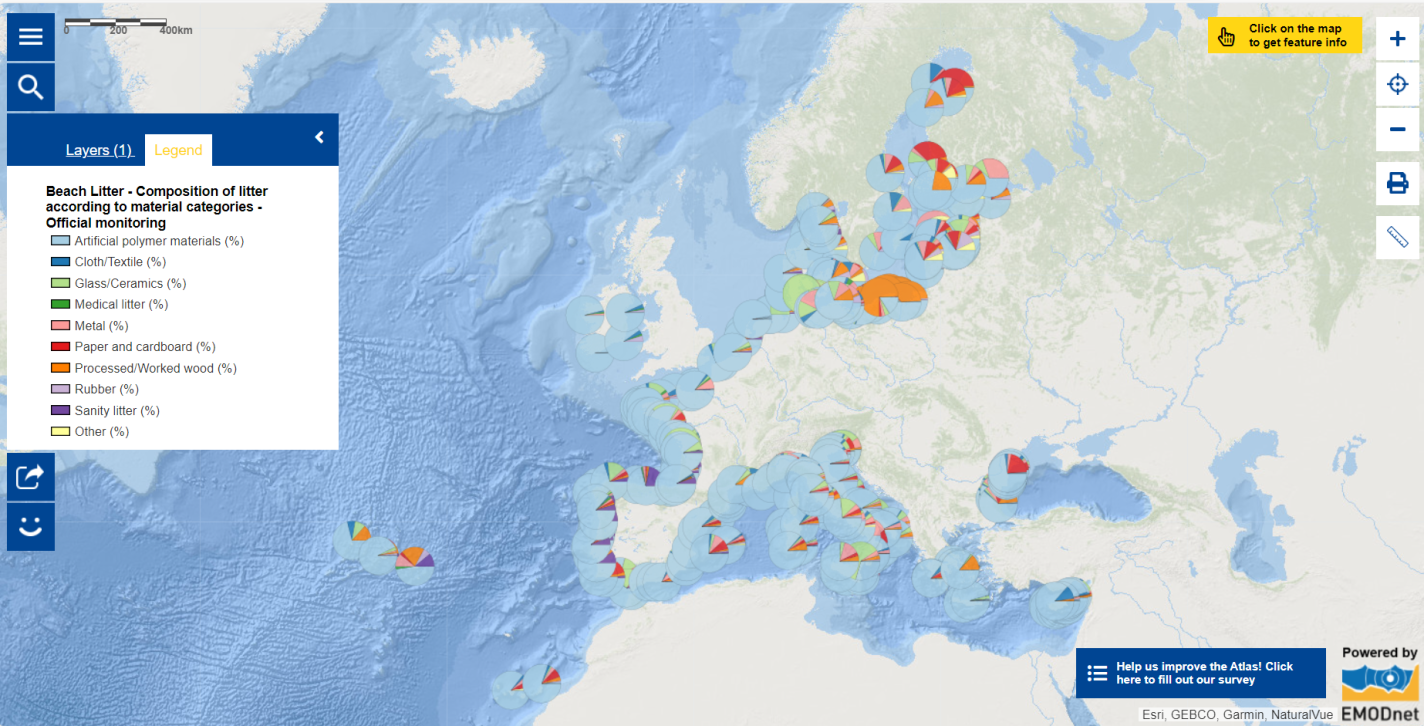Map of the Week – Waste and Plastic Reduction

In a significant stride toward combating the global plastic pollution crisis, the third session of the International Negotiating Committee on Plastic Pollution took place in Nairobi, Kenya on 13-19 November 2023.[1, 2] The negotiations achieved crucial progress, paving the way for a much-needed legally binding global agreement on plastic pollution. This development underscores the growing recognition of the urgency to address environmental issues and protect our planet for future generations. Simultaneously, as we celebrate the progress made on the international stage, it is fitting that the European Week for Waste Reduction (EWWR ) is taking place from 18 to 26 November2023 across Europe. This annual event serves as a timely reminder of the importance of waste reduction, sustainable resource and responsible waste management practices at the local and individual levels.
Every year, millions of tons of litter are generated through a variety of human activities and much of this ends up in the ocean, posing threats to the vitality of the ocean and human society. Marine litter inflicts harm on aquatic life, leading to habitat degradation, entanglement, and bioaccumulation of toxic substances. Beyond the environmental repercussions, the toxins accumulated in marine life pose potential risks to human health via seafood consumption. The economic impacts on industries such as fisheries and tourism further highlight the urgency of mitigating the threat of marine litter! The map of this week identifies the kind of litter that ends up on European beaches. Litter may have been directly left on beaches or may be marine litter that has been washed up on the shore. The map shows litter data at different locations according to several categories (glass, textile, metal, polymer, etc.) that have been monitored on Europe’s coastline under the Marine Strategy Framework Directive (MSFD). Zoom into the map and click on the graphs to get more information on beach litter found along European coastline!
Addressing the global challenge of marine litter requires coordinated international efforts to reduce plastic pollution, improve waste management systems, and promote sustainable practices to safeguard the health of the ocean and protect human well-being. Meanwhile, let us also recognise the power each individual holds in shaping a more sustainable future. By embracing a collective responsibility for our planet and taking concrete actions to reduce plastic and waste, we can contribute to a cleaner, healthier, and more resilient world for generations to come.
How can you contribute?
- Check out the EWWR ‘Get Inspired ’ page on ways to reduce, reuse and recycle, and develop good habits for reducing waste in everyday life;
- Discover different toolkits on the EWWR site;
- Learn more about waste generation and treatment for the whole economy and on specific waste streams in the European Union;
- Read the UNEP report on how the world can end plastic pollution and create a circular economy.
The data in this map are provided by EMODnet.
[1] https://environment.ec.europa.eu/news/negotiations-towards-new-global-instrument-combat-plastic-pollution-advance-2023-11-20_en
[2] https://www.unep.org/news-and-stories/press-release/third-session-negotiations-international-plastics-treaty-advance